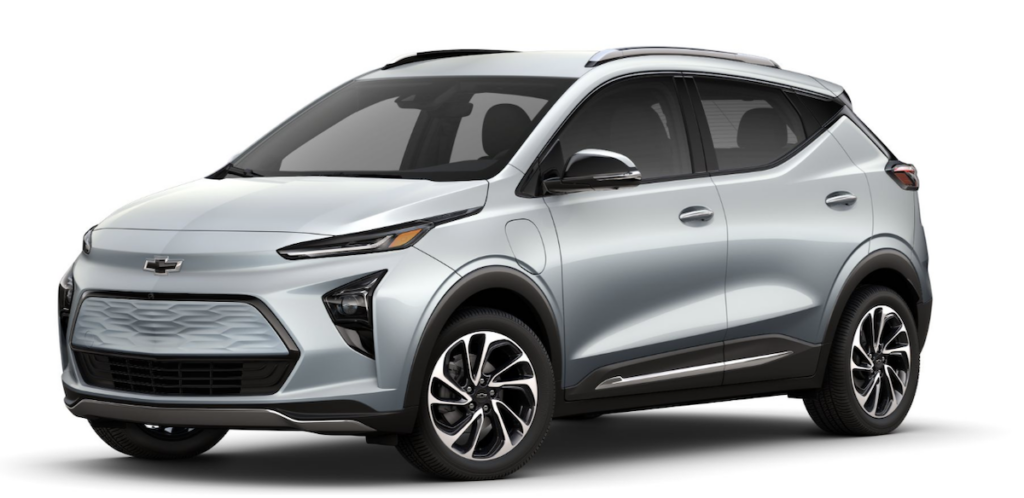
If you’re thinking about transitioning from a gas-powered car to an electric vehicle, you’re probably wondering about electric car safety. Are electric cars really safe? Are they more or less safe than their gas-powered counterparts? Which electric car models are the safest? And what safety features should you be looking for?
In this article, we’ll cover everything you need to know about electric car safety before you buy.
So…Are Electric Vehicles Safe?

While electric cars seem relatively new and therefore potentially riskier, it’s important to remember that any commercially available electric cars in the U.S. must go through the same rigorous safety testing that gas-powered cars go through. There are strict Federal Motor Vehicle Safety Standards they must meet before entering the market.
That said, electric cars are built differently and will respond differently than gas-powered cars in different kinds of accidents.
Fires
Most concerns about electric car safety have centered around lithium batteries and fires. You may remember large EV recalls of the 2017 – 2019 Bolt hatchbacks after battery fire concerns. In reality, these recalls came after just a couple of fires rather than widespread issues.
The lithium batteries found in EVs are certainly combustible and can catch on fire, but of course, so can the combustible engines of gas cars. Electric cars have the benefit of no flammable gas and their batteries are encased in sealed boxes to reduce oxygen and to contain any combustible event.
Data from the National Transportation Safety Board shows that battery fires are actually much more common in gas-powered cars than in electric cars. While fires are less common, they are often harder to put out given the high temperatures that come from the dense batteries.
Car Crashes
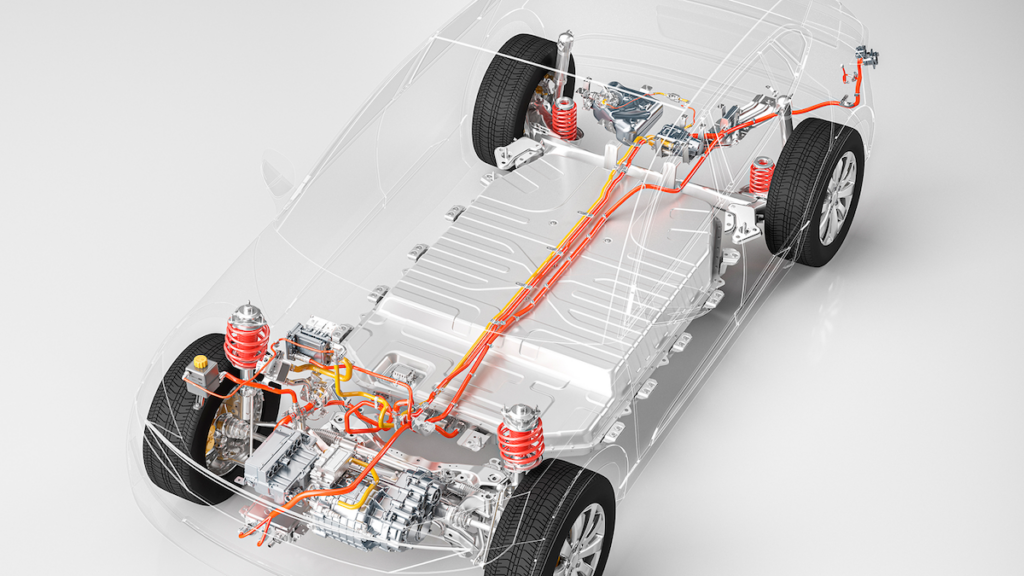
Beyond fires, studies including the recent Insurance Institute for Highway Safety study show that EVs are just as safe as gas-powered vehicles—and potentially safer. The rates of injury claims related to the drivers and passengers of electric vehicles were more than 40 percent lower than for identical conventional models over 2011-19.
Electric cars are typically significantly heavier than gas cars with batteries weighing upwards of 1,000 pounds, and the battery placement also gives electric cars a lower center of gravity. This weight and design mean EVs can both better withstand crashes and are harder to flip.
Safety Features
The last big advantage that EVs have over gas cars is new technology. Most EVs offer the latest safety technology including frontal collision avoidance with pedestrian detection, active lane correction, blind spot detection, and rear cross-traffic avoidance.
We’ll give an overview of each of these key EV safety features in the next section.
4 Must-Have Electric Car Safety Features
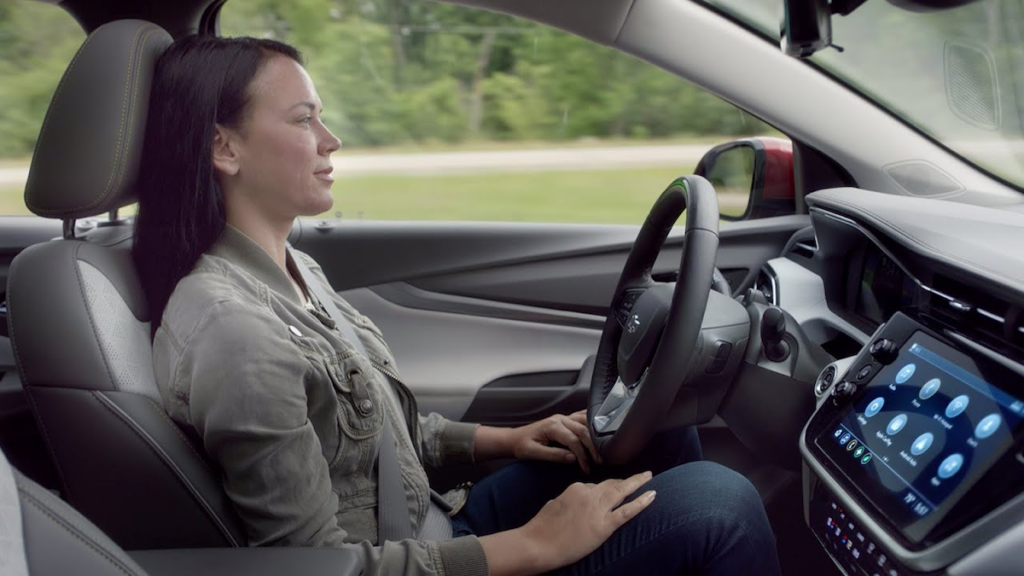
While we at EVROOM feel confident about EV safety in general, just like gas cars there are some EVs that are safer than others. Some models have more safety features and technology available than others.
Here are the safety features that are worth looking out for when purchasing an EV:
1. Lane Keep Assist with Lane Departure Warning
A common feature in gas cars too, the lane keep assist alerts you when you drift out of your lane using cameras and lane markers. If you fail to respond, it will steer you back into the proper lane to avoid any head-on collisions.
2. Forward Collision Warning With Emergency Braking and Pedestrian Detection
Another important and increasingly common feature is the forward collision warning. Using radar, lasers, or cameras to scan the road ahead while you drive, a warning will sound if there is an object ahead that could result in a crash. If needed, the car will automatically brake to avoid a crash.
In addition to other cars and objects, Pedestrian Detection identifies any people in your path and similarly helps you avoid collisions.
3. Blind-spot Monitoring With Rear Cross-Traffic Alert
If you’re changing lanes on a highway, blind spot monitoring helps you change lanes at the right time by alerting you if there is a car in your blind spot. Additionally, if you’re backing up and having trouble seeing oncoming traffic, a rear cross-traffic alert lets you know if you’re in danger of a reverse collision.
4. Adaptive Cruise Control and Highway Driving Assistance (HDA)
Cruise control has gotten better to make longer drives easier. Adaptive Cruise Control ACC automatically adjusts the speed of your car to match the speed of the car in front of you. If the car ahead slows down, ACC can automatically match it to keep a safe distance.
Hyundai and Kia vehicles offer Highway Driving Assistance, which is a version of this designed to keep you in the proper lane, at the proper speed, and at a safe distance from cars ahead of you on highway drives.
5 Safe Electric Cars to Consider in 2023
Which popular EV models today offer our recommended safety features? Quite a few of them! Many manufacturers are investing in safety to help drive EV adoption and we’re happy to see it.
Here are a few of our favorite EV models with excellent safety features that are worth considering:
1. 2023 Kia Niro EV ($33,740)
If you’re a loyal EVROOM reader, you know we’ve written about the Kia Niro before. Even at a more “entry-level” EV price point, the Kia Nero comes loaded with the latest technology and standard safety features, which make it a top pick for us.
Included safety features:
- Frontal Collision Avoidance With Pedestrian Detection
- Blind Spot Detection
- Smart Cruise Control
- High Driving Assist
- Auto Emergency Braking,
- Rear Cross-traffic Detection
- Lane-keeping Assist
2. 2023 Chevy Bolt EUV Premier ($34,895)

You have likely heard of the Chevy Bolt as one of the most affordable EVs you can buy today. While the Chevy Bolt has fairly limited standard safety features with only a rear-facing camera and Rear Seat Reminder (RSR) included, you can add Rear Park Assist, Rear Cross-Traffic Alert (RCA), and Blind Spot Warning (BSW) for only an additional $495.
If you like the Chevy Bolt but are wanting more on the safety and feature front, it may be worth upgrading to the 2023 Chevy Bolt EUV Premier. Yes, this is about an $8,000 upgrade but it’s still under the $35,000 price point, it’s significantly larger, and it is decked out with features including some of the best highway driving assistance technology on the market today.
Included safety features:
- Rear Cross Traffic Alert
- Blind Spot Warning
- Highway Driving Assistance (Hands-Free Driving Experience)
- Driver Attention Warning
- Forward Collision Avoidance with Pedestrian Detection
3. Hyundai Kona Electric SE SUV ($33,550)
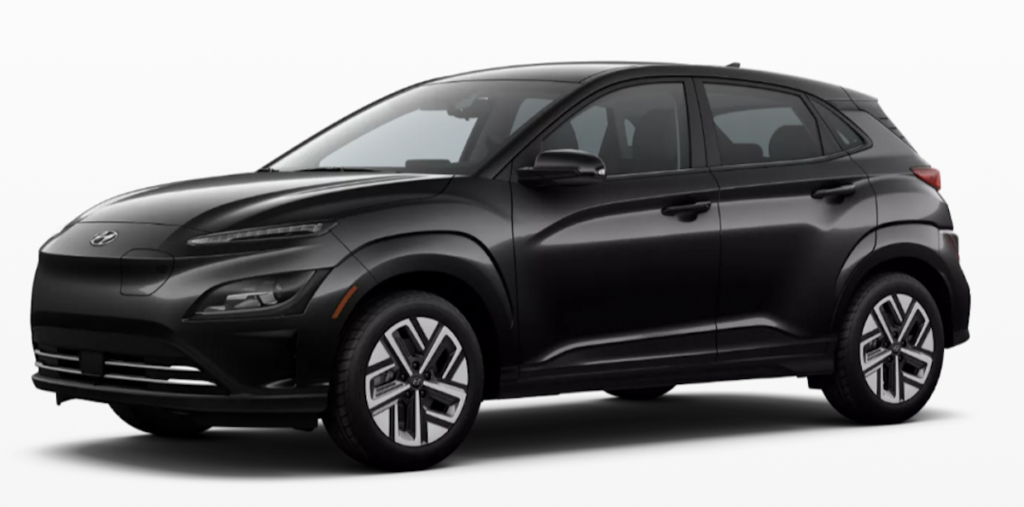
If you’re looking for an affordable electric SUV with excellent features, the Hyundai Kona Electric SE SUV is a great choice. The car has a sporty feel that, coupled with the newest safety features, make it feel like a smart, forward-thinking choice.
Included safety features:
- Forward Collision Avoidance with Pedestrian Detection
- Driver Attention Warning
- Blindspot Collision Avoidance
- Rear Cross-Traffic Collision Avoidance
- Rear Occupant Alert
- Safety Exit Warning
- Lane Keeping Assistance
4. Nissan Leaf S ($28,040)

If being under the $30,000 price point is important to you, the Nissan Leaf is a good option in terms of built-in safety features. They have a Safety Shield 360 that is standard on all 2023 Leaf models. The only things you are missing in this model vs. their up $36K SV Plus model is Blind Spot Collision Avoidance and Smart Cruise Control.
Included safety features:
- Forward Collision Avoidance with Pedestrian Detection
- Blind Spot Warning
- Driver Attention Warning
- Rear Cross-Traffic Collision Avoidance
5. 2023 Lexus RZ 450e ($55,000)
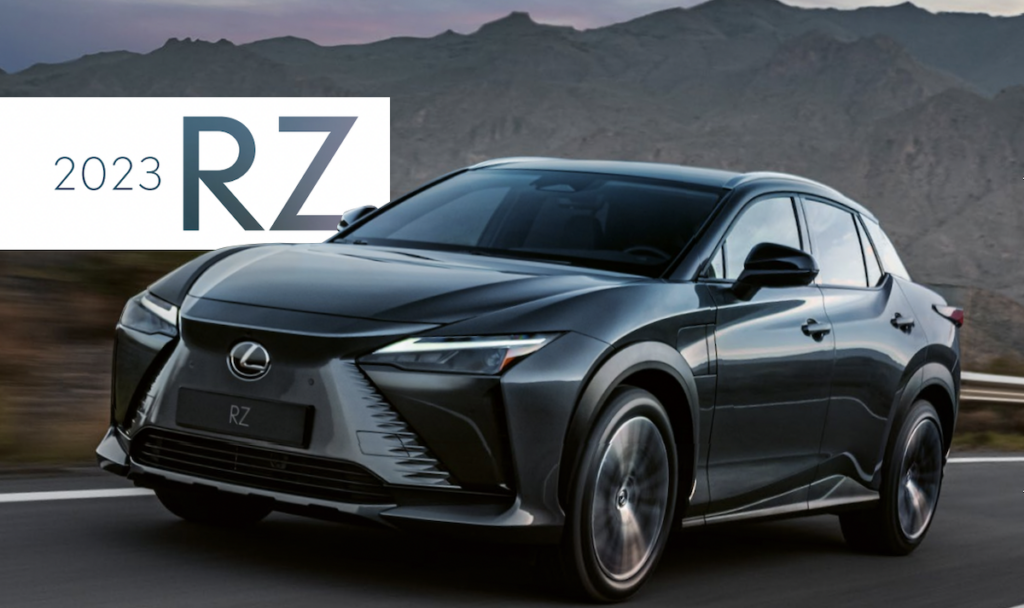
On the other hand, if you could do with a little luxury in your life, the 2023 Lexus RZ 450e might be right up your alley. Perfect for the flashy urban or suburbanite buyers with a reasonable commute, the RZ has a truckload of standard features that are an upgrade in most other electric cars. You’ll also enjoy a nice 14-inch infotainment touchscreen for easy navigation, music, etc.
Included safety features:
- Active Cruise Control
- Frontal Collision Avoidance with Pedestrian Detection
- Active Lane Correction
- Blind-Spot Detection
- Rear Cross Traffic Avoidance
Final Thoughts
Electric car safety is an important consideration if you’re thinking of making the switch to an all-electric vehicle. The good news is that EVs have been proven to be as safe if not safer than gas-powered cars. Additionally, looking out for the top safety features when purchasing an EV will give you a little extra peace of mind and support in keeping the roads safe.


Leave a Reply